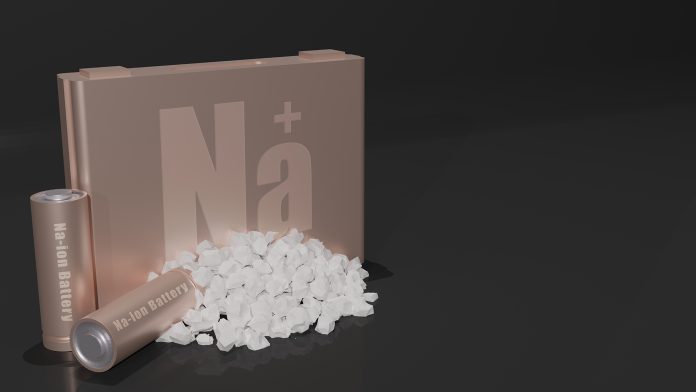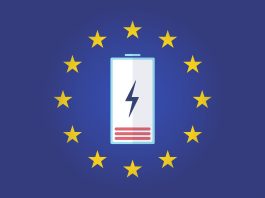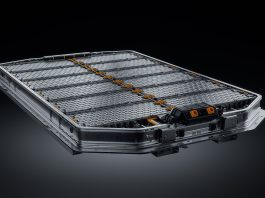Litona, a startup established at Karlsruhe Institute of Technology (KIT), is producing Prussian white on an industrial scale to commercialise sodium-ion batteries.
As they are powerful, safe, and sustainable, sodium-ion batteries have many advantages over conventional batteries. Because they don’t contain any critical resources like lithium or cobalt, they will also reduce the costs of stationary energy storage systems and electric mobility.
So far, however, energy storage materials required for production have been lacking.
Prussian white is chemically related to the well-known dye Prussian blue and is mainly based on sodium, iron, and manganese.
“This energy storage material can be used at the cathode, i.e. at the positive terminal, of a sodium-ion battery,” said Sebastian Büchele from KIT’s Institute for Applied Materials, who founded Litona.
“Such batteries are inexpensive, and all the necessary resources are widely available. I am convinced that we will soon use them in electric vehicles and stationary energy storage systems.”
From 22-26 April, Litona will present its work at KIT’s stand in the ‘Energy Solutions’ hall (hall 13, stand C76) at Hannover Messe.
Mass producing Prussian white
However, it is still unknown who will produce them, as the European industry is facing major supply problems.
Büchele said: “At the moment, even research institutions have considerable difficulties in purchasing sufficient quantities of Prussian White. There are hardly any producers in Europe.”
“This significantly impairs research and transfer of the promising sodium-ion battery technology.”
When Büchele started researching sodium-ion battery technology, he decided to synthesise Prussian white on his own.
This work at KIT did not only result in a high-quality cathode material, but also in an innovative production process.
To serve a bigger market, he founded Litona together with chemist Tom Bötticher. “Our competitors had problems in scaling the production of Prussian White analogues,” Büchele explained.
“We think that we have solved these problems. Moreover, we have developed methods to further improve our material.”
A major opportunity for the European battery industry
To validate the scaling steps and optimise Prussian white for use in next-generation batteries, Litona used the infrastructure of KIT.
Meanwhile, both researchers have already started setting up state-of-the-art Prussian white production facilities.
“We believe that European battery production has great potential,” Bötticher stated.
“With lithium-ion batteries, Asia has been ahead in recent years. Now, sodium-ion technology offers a great opportunity for a new start in Europe. We want to be a part of this development, not just an observer.”









